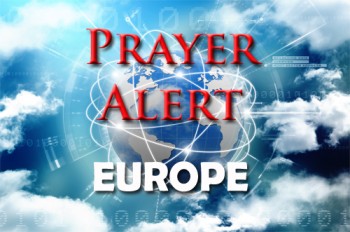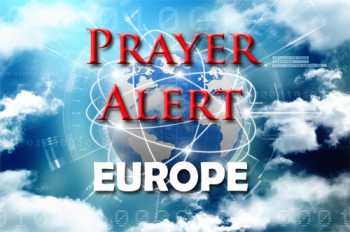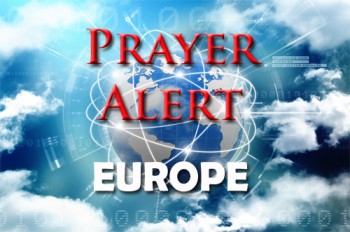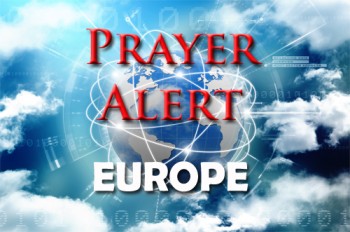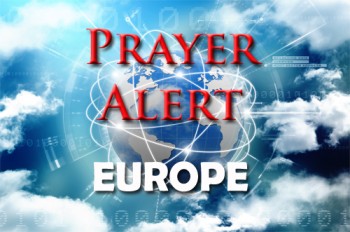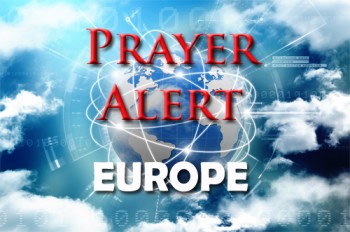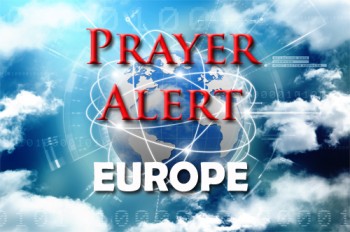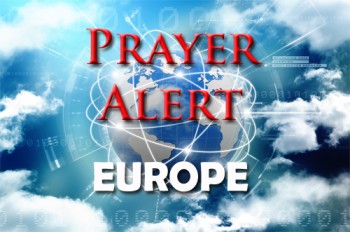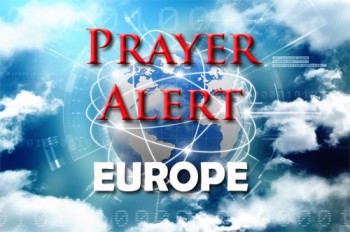Displaying items by tag: Europe
Croatia: earthquake rocks Zagreb
On 22 March a 5.3-magnitude quake, the largest in 140 years, brought panicked residents out into the streets at 6am. The interior minister told people, ‘Keep your distance. Don't gather together. We are facing two serious crises, the earthquake and the epidemic’. Many buildings cracked, with walls and rooftops damaged. Zagreb cathedral and parliament buildings were among the damaged structures. The earthquake prompted residents to flee to holiday homes on the coast: the police closed motorways and set up control points to prevent coronavirus spreading.
Europe: life in lockdown
Over 250 million Europeans are in full or partial lockdown as Belgium, Germany, Italy, Spain and France have closed schools and all non-essential shops and ordered people to stay at home. Italians in lockdown sing together from their balconies to boost morale and put candles in their windows in support of emergency workers, pharmacists, doctors, and all those putting their lives at risk. Pray for God’s protection over all these people. Italian children are making signs that say, ‘We will overcome this’. In France and Italy only one person from each household can go shopping. May God convict residents to comply with the government rules regardless of inconvenience. Intensive care in some regional care systems are ‘close to collapse’, despite efforts to free up hospital beds. Outside China, two-thirds of all cases and three-quarters of all deaths are in Europe. Europe has now recorded 600 more deaths than China.
Croatia: faith mixed with corruption
Many Croatians inhabit the land of the Dalmatian coast which in the 20th century became part of Yugoslavia. The region of Dalmatia is mentioned in the Bible, when Titus left Paul to go there. Croats had access to the Gospel very quickly, and different orders of Roman Catholicism worked among the people. For centuries Croats considered themselves Roman Catholic. Croatia nurtures religious freedom: there are Roman Catholic cathedrals and churches, Orthodox churches, Protestant churches, Islamic mosques, and other minority religions. However, the biggest problem is corruption. ‘Giving favours’, as it is called, is the way of thinking for many. Unfortunately, they do not consider it sinful or recognise the consequences of it for society in general.
Europe: coronavirus and Christian conferences
The Willow Creek 2020 Leadership Conference in Germany started on 27 February with 7,400 attendees, but ended abruptly after one of the speakers contracted coronavirus. The speaker was never present during the event, but was involved with the preparations. Three people who had contact with him have since tested positive for coronavirus. Also an EU prayer meeting due to take place in Zagreb was cancelled due to coronavirus. Pray for the organisers of the many planned 2020 gatherings to make wise decisions due to health and safety issues. Pray also for the plight of homeless refugees as borders and societies close down. See also
Finland: free speech
Finnish MP Päivi Räsänen was chair of the Christian Democrats from 2004 to 2015; as interior minister she had responsibility for church affairs. On 2 March she faced a police investigation because of a tweet she posted last year directed at the leadership of her church, questioning its sponsorship of the LGBT event ‘Pride 2019’, and quoting a Bible text. After a lengthy police interview last November, she now faces a second interrogation about a pamphlet she wrote 16 years ago on human sexuality for a Christian foundation. These sorts of cases create a culture of fear and censorship and are becoming common throughout Europe. In a free society, everyone should be allowed to share their beliefs without fear of censorship. Finland has a number of laws to regulate speech, including the ‘ethnic agitation’ law which carries a prison sentence of up to two years.
Italy: faith conversations 'like never before'
In response to coronavirus, 60 million Italians have been told to stay at home until 3 April, except for work and emergencies. As Italy deals with a total lockdown, gospel opportunities are flourishing. The vice-chairman of Italy’s Evangelical Alliance said, ‘Often our challenges bring with them opportunities. We've never experienced a time of openness towards spiritual conversations as we have in the past few days.’ The Diocese of Rome has cancelled the celebration of all Catholic masses and announced a day of fasting and prayer with a special televised mass. People are struggling to handle fear, anxiety and despair. That, of course, is a pain, but it brings opportunities for the Gospel to be shared, and also to be lived out. Although we may not go around to homes, we can phone, we can use technology, we can try to stay close to people as much as possible’.
Russia: Christians and new laws
Security agencies are using ‘Yarovaya Law’ to impose harsh restrictions on evangelical Christians to tackle ‘extremist’ activities. The law demands permits to enable meeting outside registered religious buildings - outlawing house churches and prayer meetings. The law gives security agencies access to private phone conversations and text messages. There are few Protestants who have not been impacted by the law. A Moscow pastor with a congregation of 50 who are interrupted most Sundays by police said, ‘Authorities dressed as civilians knock on our door, asking to come in and “pray”. If we refuse they film us turning them away and use the footage against us. If we let them in they take pictures inside the church to identify ways that we are violating the law and must pay fines for “illegal missionary activity”’. Meanwhile President Putin’s revised constitution wants gay marriage to be forbidden. It will be put to a public vote. See
EU facing new migrant crisis
A migrant crisis on the Turkey/Greece border is entwined with Idlib, the last stronghold of Syrian rebels backed by Turkey. Russia supports Syria and intends eradicating rebels from Idlib. When 34 Turkish soldiers died in Russian airstrikes, Turkey withdrew from an agreement to prevent refugees from crossing Turkey’s borders with Greece and Bulgaria, so by 5 March 25,000 refugees and migrants had gathered on the Greek border, seeking to cross into Europe. But they faced Greek troops repelling them with tear gas and water cannons on the land border and denying landing permission at the coast. EU leaders voiced unwavering solidarity with Greece, pledging to deploy urgent border guard reinforcements on land and at sea, and to disburse immediately some €350 million in aid, sending a message to the EU's 440 million citizens that they will prevent a new wave of arrivals at a time when the continent is struggling to prevent a coronavirus epidemic. See
Rise Up Now - Brussels 11th to 13th June 2020
The Lord is gathering His people on the European Continent, and the whole body of Christ from other parts of the world stands with this European Gathering, for we know that the Lord will uncover the old wells on this continent and new streams of grace will again flow from Europe to the world.
In the last years Rise-Up Now has run several conferences in different European cities with the vision to see national European believers and immigrant believers from different parts of the world living in Europe work together to proclaim God's ownership of each European land they live in through prayer, networking, and proclaiming the good news to all.
His bride from every tribe, people, and nation exclaims to HIM, "You are worthy." This bride from many nations will come together in Brussels from June 11th to 13th to worship Him and proclaim His dominion over Europe.
Video invitations:
Dr. Khaled Leon
https://youtu.be/rAy302eg-js
Fadi Krikor
https://youtu.be/WPPR0AGpmpE
Pastor Yassir Eric
https://youtu.be/I1m_MRjwvtg
The Lord gathers his people from Europe and the whole body of Christ from other parts of the world to become one with the European assembly because we know that the Lord will open the old wells on this continent Europe and new streams of grace from Europe again will flow all over the world.
In recent years, Rise-Up Now has held several conferences in different European cities with the vision of seeing European siblings working together with foreign siblings who come from different parts of the world and now live in Europe To proclaim God's rule over every European country they live in through prayer and cooperation in spreading the gospel.
His bride from every tribe, people and nation calls to him: "You are worthy." This bride from many nations will meet in Brussels from June 11th to 13th to worship him and proclaim his rule over Europe.
To Register Click Here:
Denmark: Corruption & money laundering
A court in Copenhagen has sent a social worker to prison for 6 years 5 months after she was found guilty of embezzling welfare money for decades, approximately $17 million. Britta Nielsen was extradited from South Africa, where she had fled after becoming a suspect in what is considered the worst corruption scandal of its kind. The case shocked Denmark. The Nordic nation is still trying to track down billions of dollars lost through a combination of tax evasion and a botched handling of foreign claims on dividend taxes. Meanwhile, Denmark’s biggest lender, Danske Bank A/S, is at the centre of an historic money-laundering scandal.
